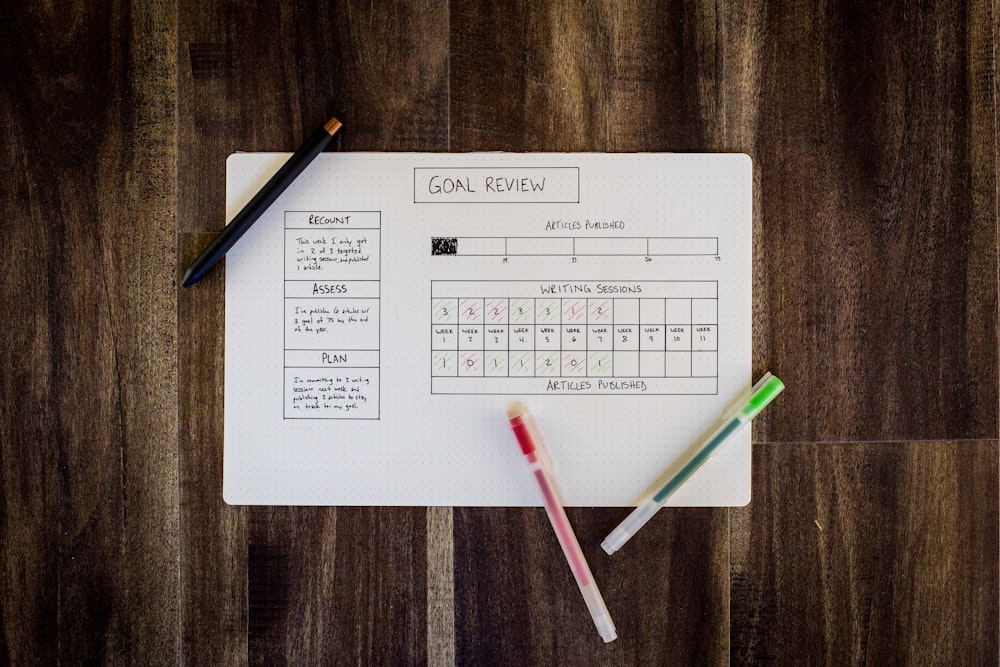Achieving greatness begins with setting personal goals. Experts agree that establishing clear, concrete goals can significantly improve our performance in various life domains, from work and finances to relationships and personal growth. The following guide provides comprehensive examples of personal goals, adopting a professional, authoritative tone to empower and engage readers.
Understanding Personal Goals
Personal goals serve as the north star in the constellation of our lives, guiding us towards desired outcomes and accomplishments across different facets such as work, relationships, health, and finances. Unlike goals imposed by others, personal goals spring from our own values, aspirations, and reflections, making them deeply individual and unique.
At the heart of successful personal goal-setting lies the SMART framework, a strategic approach designed to transform nebulous dreams into attainable targets. The acronym SMART stands for Specific, Measurable, Achievable, Relevant, and Time-bound, each a crucial ingredient in crafting a goal that not only inspires but also leads to tangible results.
The SMART Framework for Personal Goals
The SMART framework is a guide for setting personal goals. Here’s what each component of the SMART acronym means:
- Specific: Set precise goals that clearly state what you want to achieve.
- Measurable: Make your goals quantifiable to track your progress effectively.
- Achievable: Ensure your goals are challenging, yet attainable.
- Relevant: Your goals should align with your values and long-term objectives.
- Time-bound: Set a deadline for your goals to prompt urgency and motivation.
The SMART framework is not just a mnemonic; it’s a set of guidelines that can help you create better, more achievable goals.
Setting Personal Goals: Key Factors to Consider
When setting personal goals, it’s essential to consider factors like your needs and values. Goals that satisfy our needs are more likely to be adhered to, while those that conflict with our values may create internal friction and hinder progress.
Identifying Needs
Needs can be a powerful motivator for setting and sticking to personal goals. Some theories suggest that our needs drive us to set goals in the first place. Consider the six experiences we all strive for:
- Positive relationships with others
- Self-acceptance
- Autonomy
- Environmental mastery
- Personal growth
- Life purpose
When setting personal goals, ask yourself if they help satisfy any of these needs.
Recognizing Values
Values are profound beliefs or philosophies that guide our actions and decisions. When setting personal goals, it’s crucial to keep your values at the forefront. Goals that align with our values are more likely to be achieved, while those that contradict them may cause inner conflict and derail our progress. Here’s a list of personal values to consider:
- Authenticity
- Adventure
- Balance
- Bravery
- Compassion
- Challenge
- Citizenship
- Community
- Creativity
- Curiosity
- Determination
- Fairness
- Freedom
- Friendships
- Fun
- Generosity
- Growth
- Honesty
- Influence
- Justice
- Kindness
- Knowledge
- Leadership
- Learning
- Love
- Loyalty
- Openness
- Optimism
- Recognition
- Respect
- Responsibility
- Security
- Self-Respect
- Social Connection
- Spirituality
- Stability
- Status
- Wealth
- Wisdom
When setting personal goals, always check if they align with your key values.
Different Types of Personal Goals
The tapestry of personal aspirations is rich and varied, encompassing a range of spheres that reflect the multifaceted nature of human life. Personal goals act as signposts, guiding us through the different areas of our existence, each contributing to a more rounded and fulfilling life journey. Understanding the various types of personal goals can help you craft a balanced and comprehensive approach to personal development. Here, we explore some of the key categories:
1. Career Goals
Career goals are pivotal for those looking to advance or make a significant change in their professional lives. These could include aspirations like achieving a certain position, enhancing job skills, expanding a professional network, or even transitioning to a completely new field. Setting career goals helps focus your efforts on specific professional milestones, leading to greater job satisfaction and success.
2. Financial Goals
Financial stability is a cornerstone of peace of mind and security. Financial goals might involve saving for retirement, eliminating debt, increasing income, or investing wisely. By setting clear financial targets, you can create a roadmap to a more secure financial future, enabling you to make informed decisions and prioritize your economic well-being.
3. Relationship Goals
Humans are inherently social creatures, and the quality of our relationships significantly impacts our overall happiness. Relationship goals may include strengthening bonds with family and friends, resolving conflicts, or building new meaningful connections. These goals emphasize the importance of interpersonal interactions and emotional support in our lives.
4. Health Goals
Without health, achieving other goals becomes significantly more challenging. Health goals can range from improving physical fitness and adopting a healthier diet to managing stress and enhancing mental well-being. Setting and pursuing health goals is crucial for maintaining the energy and vitality needed to pursue other life objectives.
5. Educational Goals
The pursuit of knowledge is a lifelong endeavor. Educational goals could be formal, such as obtaining a degree or certification, or informal, such as learning a new language or mastering a skill. These goals foster intellectual growth and can enhance both personal and professional aspects of your life.
6. Self-development Goals
Self-improvement is an ongoing process. Goals in this area focus on personal growth, such as enhancing self-awareness, building self-confidence, or developing new habits. Self-development goals are integral to becoming the best version of yourself and living a more contented and meaningful life.
7. Experience Goals
Life is not just about achieving; it’s also about experiencing. Experience goals focus on creating memorable moments and broadening horizons, such as traveling to new countries, attending cultural events, or trying new activities. These goals enrich your life, providing joy, inspiration, and a broader perspective on the world.
8. Community Goals
Contributing to something larger than oneself brings a sense of fulfillment and purpose. Community goals might involve volunteering, environmental conservation, or participating in social activism. By setting goals that benefit others, you can make a positive impact on your community and the world at large.
Understanding the different types of personal goals allows you to create a more balanced approach to personal development. By addressing various aspects of your life, you can work towards a more comprehensive sense of fulfillment and well-being. Remember, the key to effective goal setting is not just to dream but to dream with intention, creating actionable plans that guide you towards realizing your vision for a richer, more meaningful life.
A Variety of Personal Goals Examples
Here’s an assortment of personal goal examples that you can modify to fit your specific needs and desires:
- Launching a successful business.
- Saving for retirement.
- Building a loving family.
- Achieving a healthy work-life balance.
- Mastering a new skill or hobby.
- Traveling to a new country every year.
- Getting involved in community service.
- Maintaining a healthy lifestyle.
- Reading a book every month.
- Learning to play a musical instrument.
- Expanding your professional network.
- Improving your leadership skills.
- Continually learning and growing.
- Making environmental sustainability a priority.
- Practicing daily gratitude.
- Developing a regular exercise routine.
- Achieving financial independence.
- Cultivating a positive mindset.
- Pursuing lifelong learning.
- Embracing new experiences and adventures.
Sticking to Your Personal Goals
Setting personal goals is a critical initial step towards self-improvement and fulfillment. However, the journey from setting to achieving these goals is often fraught with challenges and distractions. The real test of commitment comes not in the drafting of goals but in adhering to them over time. Here, we explore several strategies to help you remain aligned with your goals and make consistent progress.
1. Track Your Progress
One of the most effective ways to stay committed to your personal goals is to regularly track your progress. This could mean keeping a journal, using an app, or maintaining a spreadsheet where you document milestones, challenges, and successes. Regular monitoring not only provides a visual representation of your progress but also reinforces your commitment and can boost your motivation by highlighting even the small wins.
2. Adjust Your Goals
Life is dynamic, and as you grow and change, so might your priorities and objectives. Recognizing this fluidity, it’s essential to review and adjust your goals periodically. If a goal no longer aligns with your broader life aspirations, or if you find it unattainable due to unforeseen circumstances, modifying it is not a sign of failure but of adaptability and realism. This flexibility can prevent discouragement and help you maintain momentum.
3. Create a Long-term Plan
While short-term goals provide immediate focus, a long-term plan establishes a roadmap for your future aspirations. Understanding how your current goals fit into the larger picture of your life can provide context and deeper motivation. This overarching perspective ensures that your efforts today are steps towards a future you desire, giving your actions more meaning and direction.
4. Break Down Your Goals
Large, ambitious goals can often feel overwhelming, leading to procrastination or burnout. To counteract this, break down your larger goals into smaller, actionable tasks. This approach makes your goals more manageable and less intimidating. Each small task completed is a step forward, building momentum and confidence as you progress toward the larger objective.
5. Set a Timeline
Assigning specific time frames to your goals adds a sense of urgency and structure to your efforts. Deadlines can motivate action and help prioritize your tasks, especially when you’re balancing multiple commitments. Moreover, a timeline offers a clear metric for measuring your progress, helping you stay focused and on track.
Incorporating these strategies into your approach to personal goals can significantly enhance your ability to stick with them and see them through to completion. By regularly assessing your progress, allowing flexibility in your plans, breaking down intimidating objectives, and maintaining a clear vision for the future, you set the stage for sustained effort and ultimate success. Remember, the journey towards personal growth is ongoing, and each step forward, no matter how small, is a victory in itself.
The Importance of Personal Goals
The journey through life is often compared to traversing a vast, uncharted territory. In this analogy, personal goals serve as your compass, offering direction and purpose amidst the uncertainty and myriad possibilities. They are not just aspirations or desires but are fundamental components of a structured and meaningful existence. Understanding the importance of personal goals can transform how you approach life, enhancing both your personal and professional development.
Direction and Clarity
Personal goals provide a clear sense of direction. By setting specific objectives, you delineate the path from where you are now to where you want to be. This clarity reduces wandering and inefficiency, focusing your efforts on tasks that move you closer to your desired outcomes. Goals act as benchmarks for progress, helping you navigate life’s complexities with a clearer vision.
Motivation and Commitment
Goals are powerful motivators. They spur you on, especially during times of difficulty or stagnation. By setting personal goals, you commit to a set of actions and behaviors that drive you forward. This commitment fosters a sense of responsibility and ownership over your life, compelling you to push through challenges and setbacks.
Purpose and Fulfillment
In the quest for a fulfilling life, personal goals are indispensable. They imbue your daily activities with purpose, transforming mundane tasks into steps towards a greater objective. This sense of purpose enriches your life, providing satisfaction and joy in the journey, not just the destination. Goals aligned with your values and passions lead to a deeper sense of fulfillment and well-being.
Measuring Success
Without personal goals, gauging success becomes a nebulous endeavor. Goals offer tangible criteria against which you can measure your achievements and progress. They allow you to reflect on your journey, celebrate your victories, and reassess your approach when necessary. This process of evaluation and reflection is crucial for growth and self-improvement.
Encourages Personal Growth
Finally, personal goals are catalysts for growth and development. They challenge you to learn, adapt, and push beyond your comfort zones. Each goal achieved is a milestone in your personal development journey, contributing to a stronger, more capable, and more resilient self.
In essence, personal goals are much more than mere items on a to-do list. They are the guiding lights of your personal and professional journey, providing direction, motivation, purpose, and a framework for assessing your growth and achievements. By investing time and thought into setting meaningful personal goals, you pave the way for a more intentional, rewarding, and fulfilling life.
Conclusion
Embarking on the journey toward achieving personal goals is a testament to one’s commitment, focus, and desire for self-improvement. The path to realizing these goals is paved with challenges, requiring a steadfast dedication and a meticulously structured plan of action. Embracing the SMART framework for goal setting—Specific, Measurable, Achievable, Relevant, and Time-bound—provides a robust foundation, guiding you methodically toward your aspirations.
Personal goals span various domains of life, from career advancement and financial security to enriching relationships and personal growth. Each goal, regardless of its scope, contributes to the overarching tapestry of your life’s ambitions and dreams. It’s crucial to approach these objectives with a balanced perspective, recognizing that the path to achievement is rarely linear but instead filled with lessons, setbacks, and triumphs.
Remember that while the journey toward your goals may be fraught with obstacles, the rewards gleaned from persistence and hard work are invaluable. The satisfaction of reaching a long-sought-after goal, the personal growth developed through overcoming adversity, and the newfound confidence gained are immeasurable benefits that permeate all aspects of your life.
In conclusion, setting and pursuing personal goals is an enriching endeavor that fosters a sense of purpose, direction, and fulfillment. Allow your goals to evolve alongside you, reflecting your growing insights and experiences. Celebrate each milestone, learn from each setback, and remain adaptable in your strategies. The journey toward personal goals is not just about the outcomes but about the transformation you undergo and the person you become along the way.
Remember, the pursuit of personal goals is a journey, not a race. Take the time to appreciate the progress, understand the value of the experiences gained, and remain patient and persistent. The journey may be challenging, but the rewards of achieving your personal goals are well worth the effort, leading to a more purposeful, fulfilled, and accomplished life.
Personal Goal FAQs
1. What is an example of a personal goal?
An example of a personal goal could be aiming to read one new book every month to improve knowledge and reduce screen time. This goal is specific, measurable, achievable, relevant, and time-bound.
2. What are the 3 types of personal goals?
The three types of personal goals include:
- Short-term goals: Objectives that you aim to achieve in the near future, typically within a few days to a year.
- Medium-term goals: Goals set for a period of one to five years, acting as stepping stones between short-term and long-term aspirations.
- Long-term goals: Ambitions that you strive to accomplish over an extended period, usually five years or more, reflecting broader life aspirations.
3. What are your personal goals in life?
Personal life goals vary significantly between individuals, but they might include achieving financial stability, maintaining a healthy lifestyle, pursuing educational achievements, cultivating meaningful relationships, or attaining professional success.
4. What is an example of a personal growth goal?
An example of a personal growth goal is improving public speaking skills by joining a local Toastmasters club and giving a speech once a month. This goal aims at enhancing self-confidence and communication abilities.
5. How do I set goals for myself?
Setting personal goals involves several steps:
- Reflect on what you genuinely want to achieve in different areas of your life.
- Be specific about what success looks like.
- Make your goals measurable so you can track progress.
- Ensure they are achievable and realistic.
- Set deadlines to provide structure and urgency.
- Write your goals down and review them regularly to stay focused.
6. How do you set personal goals?
Setting personal goals starts with self-reflection and understanding what you value and want to achieve. Prioritize your aspirations, use the SMART (Specific, Measurable, Achievable, Relevant, Time-bound) criteria to refine them, and then create actionable steps towards these objectives.
7. What are the 4 main goals in life?
While personal, the four main life goals often cited include:
- Health: Maintaining physical and mental well-being.
- Wealth: Achieving financial stability and independence.
- Love: Building and sustaining meaningful relationships.
- Happiness: Finding personal satisfaction and contentment in life.
8. What are SMART goals examples?
An example of a SMART goal is: “I want to increase my running distance from 2 to 5 miles within three months by running three times a week, gradually increasing the distance by 10% each week.” This goal is specific (increase running distance), measurable (from 2 to 5 miles), achievable (incremental increase), relevant (improves fitness), and time-bound (within three months).
Featured Image Credit: Photo by Ronnie Overgoor; Unsplash – Thank you!
















